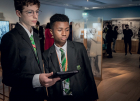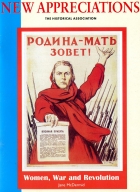Europe 1901-present
While war seems to be a backdrop to events in Europe in this time period the articles collected here explore many of the wider impacts and elements to the war. Medicine and technology are explored alongside dramatic changes in social attitudes. The political events that disrupt and shape Europe of the 20th century are explored though a range of engaging articles that include Russia and the USSR, Fascism and European co-operation.
Sort by:
Date (Newest first) | Title A-Z
Show:
All |
Articles |
Podcasts |
Multipage Articles
-

What Have Historians Been Arguing About... immigration in French history
ArticleClick to view -

What kinds of feedback help students produce better historical narratives of the interwar years?
ArticleClick to view -

What’s in a narrative? Unpicking Year 9 narratives of change in Stalin’s Russia
ArticleClick to view -

Whose past is it anyway? Telling Russian and Soviet history through diverse Jewish voices
ArticleClick to view -

Why do we continue to study the Holocaust?
ArticleClick to view -

Women, War and Revolution
ArticleClick to view -

Working as a team to teach the Holocaust well: a language-centred approach
ArticleClick to view -

Year 8 and interpretations of the First World War
ArticleClick to view -

Year 9 use sources to explore contemporary meanings and understandings of appeasement
ArticleClick to view

